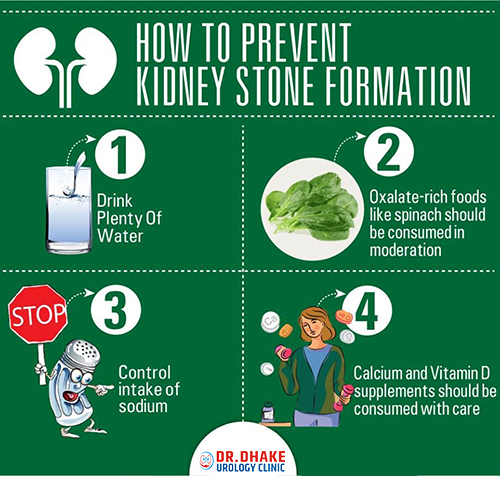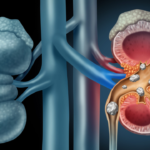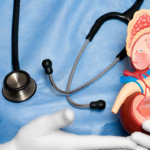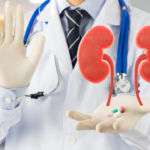
1. Don’t Underestimate Your Sweat
You may benefit from saunas, hot yoga, and heavy exercise, but they may also result in kidney stones. Exactly why? If you sweat too much – whether you do these activities or try to survive the heat of summer – your urine production decreases. During exercise, sweating decreases urination, allowing mineral stones to form and adhere in the kidneys and ureter.
Instead
H2O should be used to hydrate. Consuming plenty of water can ensure that you don’t develop kidney stones because it makes you urinate more. Therefore, you should ensure that you stay hydrated, mainly when engaged in exercise or activities that cause you to sweat a lot.
2. It’s Not Just the Oxalate
The oxa-what? Many fruits and vegetables contain oxylate, nuts and seeds, grains, legumes, and even chocolate and tea. Peanuts, rhubarb, spinach, beets, sweet potatoes, chocolate, and rhubarb are examples of foods high in oxalate. If you have calcium oxalate stones, the most common type of kidney stones, you may want to moderate the consumption of these foods. People often mistakenly believe that cutting out oxalate-rich foods from the diet will prevent the formation of calcium oxalate kidney stones. In theory, although this is the case, this approach isn’t in the best interest of an individual’s overall health. While the kidneys produce urine, oxalate binds with calcium to form kidney stones.
Instead
It would be best if you ate calcium- and oxalate-rich foods simultaneously. The preparation of oxalate and calcium ensures oxalate and calcium are more likely to bind together in the stomach and intestines before the kidneys begin processing, reducing the chances of kidney stone formation.
3. Calcium is Not the Enemy
The problem is, it gets a bad rap! People likely believe calcium-oxalate stones are the most common cause of kidney stones due to their name and composition. Even if they reduced calcium intake, Dr Rajesh Dhake sees patients who wonder why they continue to get stone formations. A diet low in calcium increases the risk of kidney stones. I have even had patients tell me that their doctors told them to lower their calcium intake.
Instead
Calcium must not be lowered. Eat calcium-rich foods with oxalate-rich foods to pair with less sodium in your diet.
4. It’s Not One and Done
The passing of kidney stones is frequently regarded as one of the most painful things a person can experience, but unfortunately, it’s not always a one-time occurrence. Research shows that having another stone increases significantly if you have even one. “People will want to take any measures to prevent this from happening again,” said Dr Dhake Despite this, most people fail to change their lifestyle after their first kidney stone event. A study conducted by Dr Rajesh Dhake shows that people with kidney stones do not always heed advice from their nephrologists. Around 15% of kidney stone sufferers did not take prescribed medications, and 41% ignored nutritional advice that would prevent the reoccurrence of the stones.
Instead
Go ahead and do it! When kidney stones recur, medication and diet changes aren’t enough to prevent them. Recurring kidney stones might also indicate problems with another organ.
5. When Life Hands You Kidney Stones
You needn’t worry. Making lemonade is essential. Along with prescription medications, we should consider dietary remedies. Taking a pill may seem easier than making lifestyle changes to improve your health, but consider that their impacts go beyond medicine.
Instead
Stop and think about your kidneys when you pass a lemonade (or limeade) stand. Researchers have determined that limeade, lemonade, and other juices and fruits containing natural citrates prevent kidney stones. But be careful of sugar because it contributes to kidney stone formation. If you don’t want to use sugar, buy sugar-free lemonade or make your own using lime or lemon juice and water, if necessary. Dr Rajesh Dhake believes that the citrate may prevent calcium from forming stones in urine by preventing it from binding with other constituents. In addition, citrate could prevent existing crystals from bonding together, which would prevent them from getting more significant.”
6. Not All Stones are Created Equal
Urinary acid stones are another common type of kidney stone and calcium oxalate stones. Purines are a substance found in high red meat, organ meats, and shellfish concentrations. Increasing purine intake will increase uric acid production, which will place a more significant burden on the kidneys. When uric acid excretion is high, the urine pH decreases, which leads to more acidic urine. As a result of the high acidity level of the urine, uric acid stones are more likely to form.
Instead
Several studies have shown that eating high-purine foods like red meat, organ meats, and shellfish can cause uric acid stones. For prevention, eat a healthy diet that primarily includes vegetables and fruits, whole grains, and low-fat dairy products. Especially avoid sugar-sweetened drinks and foods, such as those containing high fructose corn syrup. Drinking less alcohol and eating more fruits and vegetables will help reduce urine acidity. Eliminating animal-based protein and increasing fruit and vegetable intake can also help reduce the risk of kidney stones




